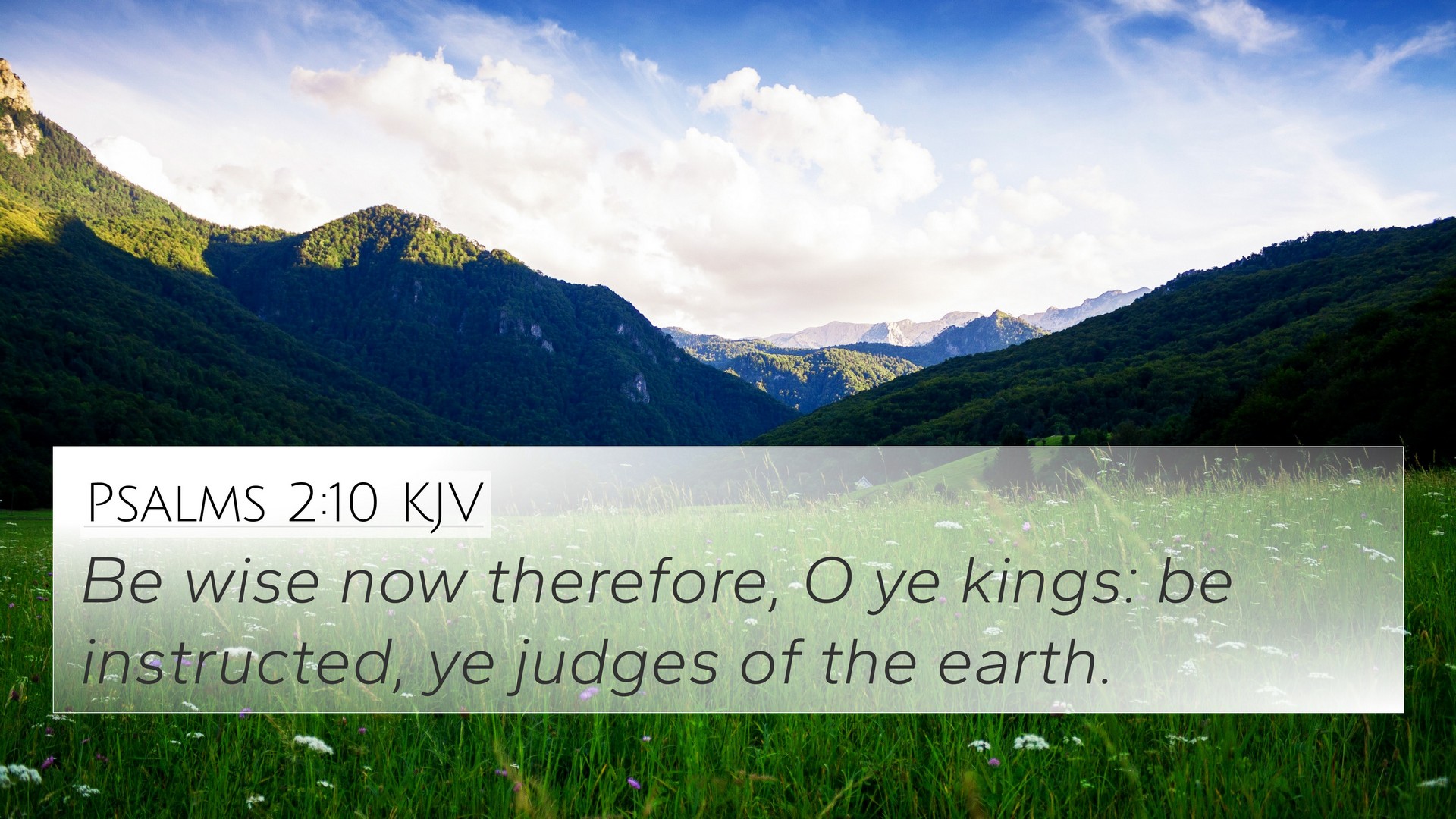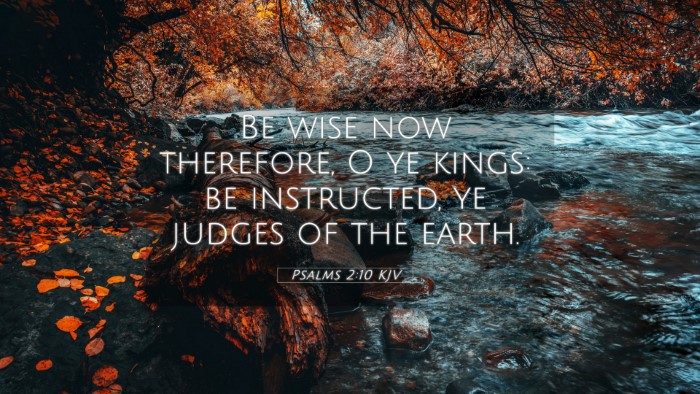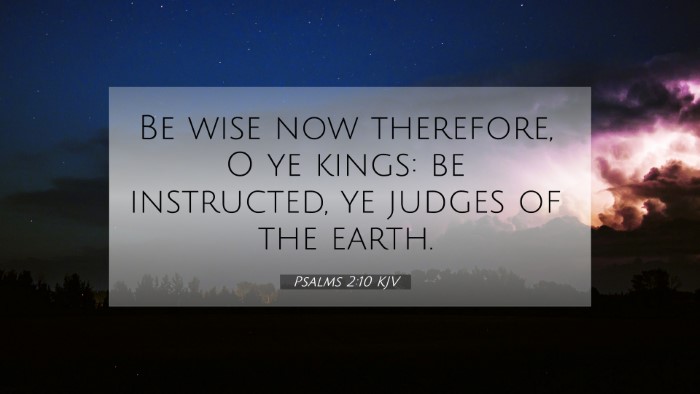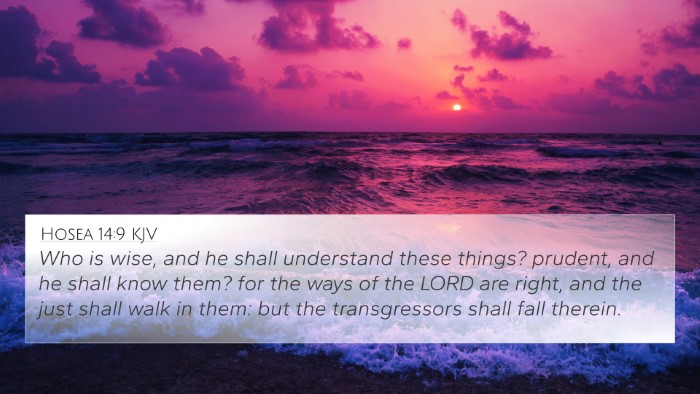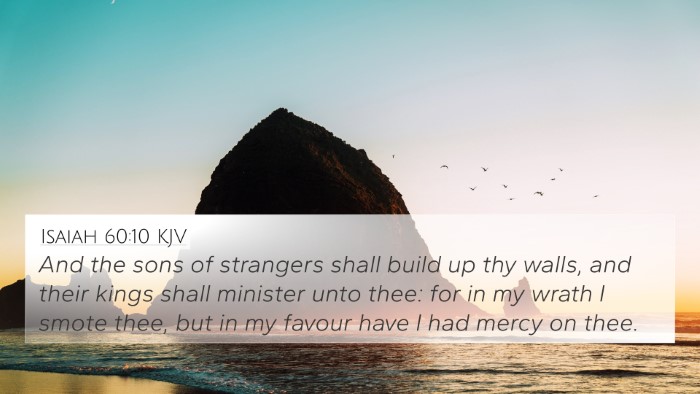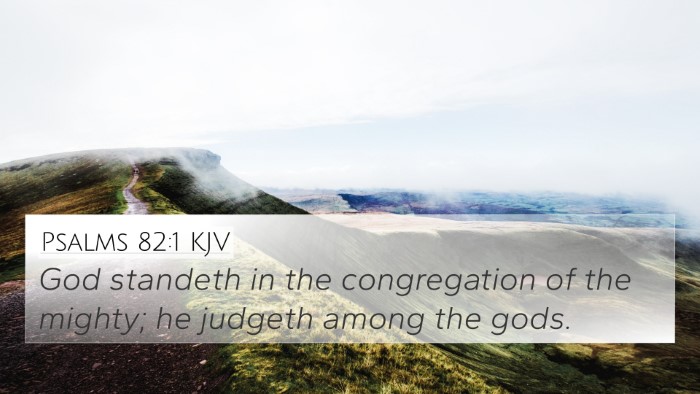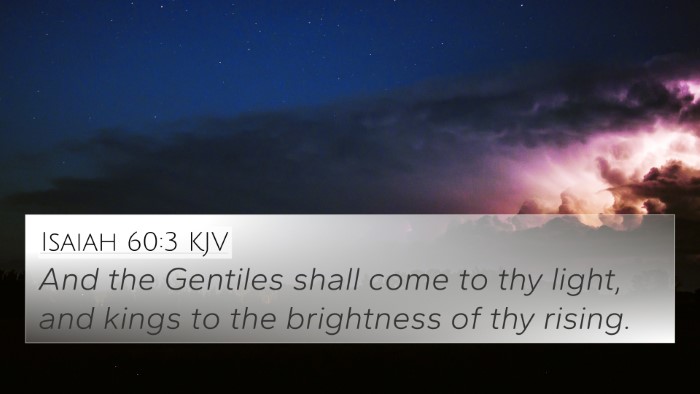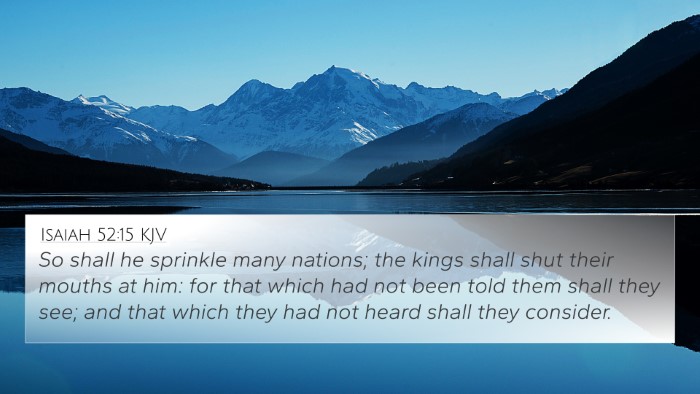Understanding Psalms 2:10
Psalms 2:10 states:
"Now therefore be wise, O ye kings: be instructed, ye judges of the earth."
This verse serves as a strong admonition to the rulers and authorities of the earth, urging them to seek wisdom and understanding in the governance of their nations.
Summary of Insights
Context and Background
The context of Psalm 2 involves the rebellion of nations against God's anointed one, portraying the futility of human opposition to divine authority. This psalm is often seen as prophetic, pointing towards the Messiah and His sovereignty.
Matthew Henry's Commentary
According to Matthew Henry, this verse calls kings and judges to recognize the authority of God. They should not act rashly or in opposition to God’s anointed. Instead, there is a call for humility and wisdom in leadership, aligning their actions with God’s will.
Albert Barnes' Commentary
Albert Barnes emphasizes the need for rulers to seek counsel and be instructed, understanding their role as ordained by God. The mention of wisdom signifies that they must pursue knowledge beyond their own judgments, reflecting on divine guidance to uphold justice.
Adam Clarke's Commentary
Adam Clarke highlights that this verse stresses the importance of heeding divine advice. The term "wise" indicates an understanding that transcends human insight; it conveys the urgency for leaders to listen and be guided by the wisdom imparted by God.
Significance of the Verse
This verse is significant as it addresses both the temporal and spiritual responsibilities of rulers. It implies that earthly authority is accountable to a higher power, which guides their actions and decisions.
Bible Cross References
- 1 Samuel 8:7: God commands Samuel to listen to the people, emphasizing His authority over kingship.
- Proverbs 8:15-16: Wisdom is personified and indicates that by her kings reign.
- Ecclesiastes 8:5: Understanding the command leads to safety and success.
- Romans 13:1: There is no authority except from God; the authorities that exist are appointed by Him.
- James 1:5: If anyone lacks wisdom, let him ask of God, who gives generously.
- Psalms 111:10: The fear of the Lord is the beginning of wisdom; good understanding have all those who do His commandments.
- Acts 4:19: The apostles acknowledge God's authority in teaching against the rulers.
- Isaiah 40:22: He sits above the circle of the earth and its inhabitants are like grasshoppers, emphasizing God’s sovereignty.
- Jeremiah 10:23: Acknowledgment that man’s way is not in himself; it is not in man who walks to direct his own steps.
- 1 Peter 2:13-14: Submitting to every ordinance of man for the Lord’s sake, as a call to wisdom in governance.
Exploring Connections Between the Verses
The connections between Psalms 2:10 and these referenced verses illustrate the theme of divine authority in governance. By cross-referencing these scriptures, we can identify the comprehensive nature of God's instructions to rulers and authorities, revealing a consistent biblical theme throughout both the Old and New Testaments.
Thematic Bible Verse Connections
As we delve into the connections between these verses, we uncover:
- The Responsibility of Leadership: A dominant theme in biblical texts, indicating that those in power must seek God’s wisdom.
- God’s Sovereignty: These verses collectively affirm that true authority lies with God, and human powers are expected to operate under His reign.
- The Importance of Divine Guidance: Many of the connected verses echo the sentiment that seeking wisdom from God is crucial for effective leadership.
Conclusion
Psalms 2:10 serves as a profound reminder for leaders in all capacities to recognize their need for God’s wisdom. Through understanding the interconnectedness of scripture, we see a clear directive for those in authority—a call to humility and reliance on divine insight to govern righteously.
Further Studies on Bible Cross-Referencing
For those interested in exploring Bible cross-reference guides, there are various tools available that enrich the study of Scripture, helping individuals identify connections between different verses effectively. This practice can deepen one’s understanding of thematic links, enhancing the overall comprehension of Biblical truths.
